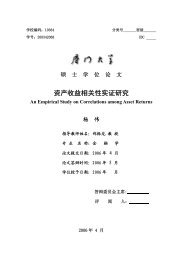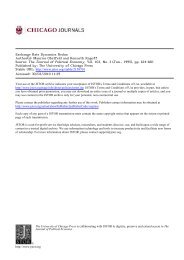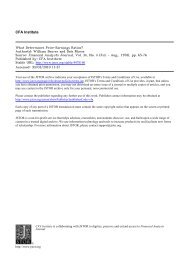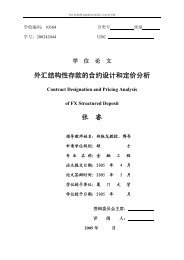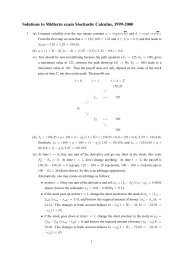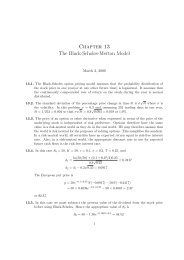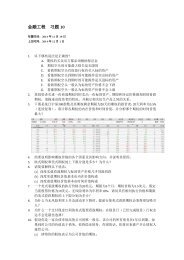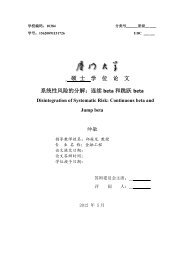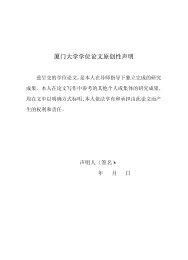You also want an ePaper? Increase the reach of your titles
YUMPU automatically turns print PDFs into web optimized ePapers that Google loves.
Abstract<br />
Liquidity has a significant influence on assets return. Previous researches mainly<br />
discussed the influence of liquidity on portfolio selection and asset pricing in terms of<br />
market microstructure theory, such as the bid-ask spread and transaction costs. They<br />
seldom researched on assets pricing under the condition of liquidity restriction in a<br />
certain period. There are many assets (such as China’s national share and restricted<br />
institutional shares (RIS), staff shares, managerial ownership) which can’t be<br />
reasonably priced due to the defects of theory. Thus, these researches can’t provide<br />
theoretical support for the standards of Considerration level in the reform of equity<br />
segmentation.<br />
This paper provides the optimal portfolio strategies with and without the liquidity<br />
restriction under the framework of continuous-time intertemporal dynamic<br />
programming. We researches the impact of limitation of liquidity on asset pricing ,<br />
that is, illiquid discount,and researches the impact factors of the liquidity discount<br />
and its time-varied characters ,in order to offer theorical evidence for the standard of<br />
Considerration level in the reform of equity segmentation. Then we empirically<br />
discuss the reasonability of Considerration level from nonnegotiable shares holders to<br />
negotiable shares holders, which exists in the reform of equity segmentation.<br />
This paper assistivly contributes to literature on the effects of illiquidity on asset<br />
prices. We prove that illiquid assets radically affect the optimal portfolio strategy in<br />
asset allocation and assets’ price , and we provide original closed-form solution for<br />
the optimal portfolio of agents in the Stochastic Volatility Model with liquidity<br />
limitation and the illiquid discount rate when time varies .Our empirical results show<br />
that illiquid assets discount rate is significantly influenced by the time length of<br />
liquidity restriction, the volatility of illiquid assets and other parameters. Therefore, it<br />
doesn’t support the the average phenomenons of price discount level of companies<br />
which have conducted the reform .<br />
The innovations of this paper exist in:<br />
(1) This paper researches on the assets pricing in illiquid market under the condition<br />
of market segmentation by breaking through the previous researches framework



